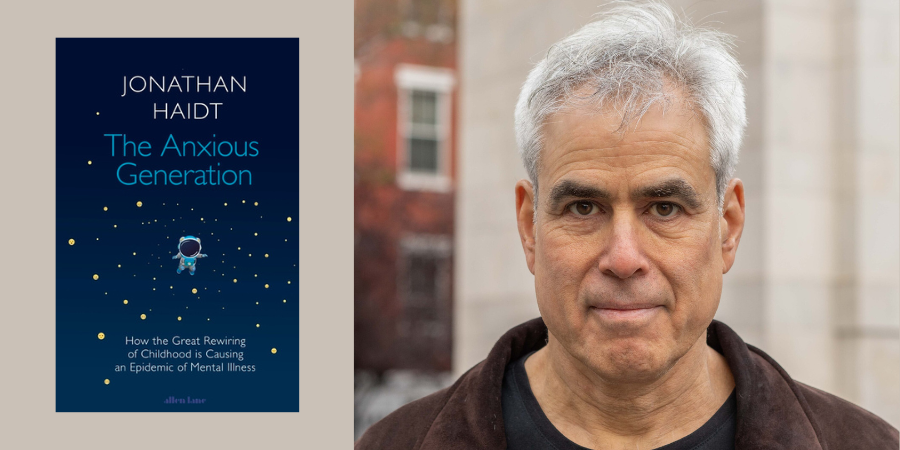
Book of the Month: The Anxious Generation by Jonathan Haidt
-
We are pleased to announce Welldoing's Book of the Month for March 2024
-
Our aim is to help our audience find a wide range of books and resources to help with their mental health and wellbeing, or share experiences that are useful to others
-
March's Book of the Month The Anxious Generation: How the Great Rewiring of Childhood is Causing an Epidemic of Mental Illness will appeal to anyone interested in mental health and parenting
There are lots of books about the future of tech, and the risks it poses to our brains, bodies, and relationships, particularly among the younger generation. And there are probably even more books about bringing up children. But this book, The Anxious Generation, by Jonathan Haidt, looks to become the gold standard for both, urging us to consider the huge changes that have been made to the state of childhood — and then challenging us all to do something about it.
Haidt is a social psychologist at New York University’s Stern School of Business. Previous books such as The Happiness Hypothesis have dealt with emerging trends in the US and the world, and in fact with this book he had intended to focus on social media. But one chapter in, he realised that the real story, the huge and largely untold one, was what was happening to children born after 1995, Generation Z. Haidt has titled the effects of the rush of technological change the Great Rewiring of Childhood, and links it to an epidemic of mental illness.
A huge amount of what makes up modern childhood is unlike what any of us experienced growing up. Smart phones and social media, largely untested on children before launched, mean that much of their world is now virtual, and many of their relationships are with people they have never met.
Using data from across the world, but largely English-speaking countries, Haidt ascertained that levels of wellbeing and mental health have declined markedly among teens from 2010 onwards. “The tidal wave of anxiety, depression and self-harm hit girls harder than boys, and it hit preteen girls hardest of all,” says Haidt. And the only plausible theory he could find to explain “the international decline in teen mental health [at that time] is the sudden and massive change in the technology that teens were using to connect with each other.”
Alongside his attack on the callousness and greed of huge tech companies such as Google and Meta, Haidt blames the parents, going back to the 1980s as the starting point. Around this time an over-protective strand entered child-rearing. Previous generations had played outside, often with minimal supervision. Problems may have been encountered occasionally, but were largely overcome by the children themselves. They built resilience from their own ability to deal with situations and people.
From the 1980s on, parents were encouraged towards over-protection and also towards greater child-control. Instead of nurturing children like plants, to see how and when they would flourish, parents started to see their children as products, and wanted to create the best versions. Haidt quotes developmental psychologist Alison Gopnik: “Our job is not to shape our children’s minds; it’s to let those minds explore all the possibilities that the world allows.”
Unprotected from the powers of technology companies, overprotected from normal childhood adventures, it is no surprise, says Haidt, that so many Gen Zers are sad, lonely, fearful, wracked with the sense they will never measure up to the starry standards of others. They don’t get enough sleep, they don’t meet up with others, their concentration is fragmented, and they have become addicted to their phones.
Haidt has a slew of evidence-based actions for the return to at least some semblance of play-based childhood. His advice is aimed at government, tech companies, schools and, of course, parents. If you are a member of any of these groups, I urge you to read this book. It’s urgent, compelling and it makes sense. As Haidt would say, It’s not too late at all, if we all agree that damage has been done, and act collectively.
Jonathan Haidt's The Anxious Generation: How the Great Rewiring of Childhood is Causing an Epidemic of Mental Illness is our Welldoing Book of the Month for March 2024










